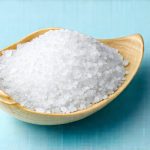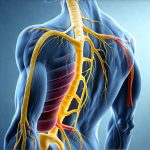Constipation is a surprisingly common digestive issue affecting people of all ages. While often dismissed as minor discomfort, chronic constipation can significantly impact quality of life, leading to bloating, abdominal pain, and even more serious complications over time. Many factors contribute to constipation – inadequate fiber intake, dehydration, lack of physical activity, certain medications, and underlying medical conditions are among the most frequent culprits. However, a less commonly recognized but increasingly important factor is insufficient protein consumption. The link between dietary protein and bowel regularity isn’t always obvious; we often associate fiber with healthy digestion, yet protein plays a crucial role in maintaining optimal gut function and overall digestive health.
This article delves into the intricate relationship between low protein intake and constipation, exploring the physiological mechanisms at play, identifying populations particularly vulnerable to this issue, and outlining practical strategies for improving dietary habits to promote both adequate protein consumption and healthy bowel movements. Understanding how protein impacts digestion isn’t about demonizing carbohydrates or fats; it’s about recognizing the importance of a balanced nutritional approach where all macronutrients work in harmony to support our well-being. It will also cover how to identify if low protein might be contributing to your constipation and what steps you can take to address it, emphasizing holistic approaches rather than quick fixes.
The Role of Protein in Digestive Health
Protein isn’t just about building muscle; it’s fundamental to the entire digestive process. Adequate protein intake contributes significantly to maintaining a healthy gut microbiome – the trillions of bacteria residing in our intestines that play a vital role in digestion, immunity and overall health. These bacteria thrive on specific nutrients, and protein provides essential amino acids necessary for their growth and function. A deficiency can lead to an imbalance in gut flora (dysbiosis), potentially reducing digestive efficiency and contributing to constipation. Furthermore, protein helps stimulate peristalsis – the wave-like muscular contractions that move food through the digestive tract. Without sufficient protein, these contractions may slow down, leading to prolonged transit time and harder stools.
The process of digesting protein itself also influences bowel movements. Protein digestion stimulates the release of gastrointestinal hormones like cholecystokinin (CCK), which encourages bile production and intestinal motility. Bile acids are essential for fat absorption, but they also subtly enhance gut movement. Insufficient protein intake can therefore reduce this hormonal signaling, further slowing down digestive processes. It’s a complex interplay; while fiber provides bulk, protein moves the bulk along, essentially acting as a catalyst for effective digestion.
Beyond these direct effects on the digestive system, protein is vital for maintaining muscle mass, including the muscles of the intestinal wall. Stronger gut muscles mean more efficient peristalsis and better bowel regularity. Chronic low protein intake can contribute to muscle loss throughout the body, weakening the digestive tract and making constipation more likely. This is particularly relevant as we age, where natural muscle loss (sarcopenia) accelerates if protein needs aren’t met.
Identifying Protein Deficiency & Constipation Link
Pinpointing whether your constipation is linked to low protein can be tricky, as many factors overlap. However, certain signs and symptoms can suggest a connection. One key indicator is a diet consistently lacking in protein-rich foods like meat, poultry, fish, eggs, dairy, legumes, and tofu. Individuals who follow restrictive diets – such as very low-calorie or predominantly plant-based diets without careful planning – are at higher risk of protein deficiency. Another clue is the presence of other symptoms associated with insufficient protein, like fatigue, weakness, hair loss, and impaired wound healing.
It’s important to differentiate between occasional constipation, which is usually harmless, and chronic constipation. Chronic constipation is defined as having fewer than three bowel movements per week for at least three months, often accompanied by straining, incomplete evacuation, or a sense of blockage. If you experience these symptoms and suspect your protein intake may be low, it’s worth evaluating your diet carefully. Consider tracking your food intake for a few days to assess how much protein you’re actually consuming. Numerous apps and online tools can help with this process.
A helpful strategy is also observing whether increasing protein intake leads to improvements in bowel regularity. This isn’t about drastically changing your diet overnight, but rather gradually incorporating more protein-rich foods into your meals over a period of time. If you notice a positive correlation – meaning constipation eases as protein consumption increases – it strongly suggests that low protein was contributing to the issue. It’s crucial to remember this is not self-diagnosis; persistent or severe constipation should always be evaluated by a healthcare professional. Some individuals may experience [frequent nausea] (https://vitagastro.com/can-frequent-nausea-be-caused-by-acid-reflux-alone/) alongside constipation, warranting further investigation.
Dietary Strategies for Improving Protein Intake and Bowel Regularity
Addressing protein-related constipation starts with dietary adjustments. The recommended daily allowance (RDA) for protein is 0.8 grams per kilogram of body weight, but this can vary depending on activity level, age, and overall health. Active individuals, older adults, and those recovering from illness may require higher amounts. A good starting point is to aim for at least 20-30 grams of protein per meal.
Here’s a step-by-step approach:
- Assess your current intake: Use a food diary or app to track protein consumption for several days.
- Identify protein sources: Incorporate a variety of lean protein sources into each meal, such as chicken breast, fish (salmon, tuna), eggs, Greek yogurt, lentils, beans, tofu, and quinoa.
- Spread out intake: Instead of consuming most of your protein at dinner, distribute it evenly throughout the day. This helps maintain consistent levels of digestive hormones and supports sustained energy.
- Combine with fiber: While increasing protein is important, don’t neglect fiber! Pairing protein-rich foods with high-fiber options like fruits, vegetables, and whole grains optimizes digestion.
- Hydrate adequately: Water is essential for both protein digestion and bowel regularity. Aim for at least eight glasses of water per day.
Beyond these basic strategies, consider incorporating probiotic-rich foods (yogurt, kefir, sauerkraut) to support a healthy gut microbiome. Also, be mindful of food sensitivities or intolerances that might contribute to digestive issues. Small, consistent changes are more sustainable than drastic dietary overhauls. If you’re experiencing [throat burning] (https://vitagastro.com/how-to-stop-throat-burning-caused-by-acid-reflux/) alongside constipation, it’s important to address both symptoms concurrently.
Populations at Risk and Considerations
Certain groups are inherently more vulnerable to constipation caused by low protein intake. Elderly individuals often experience reduced appetite and decreased ability to absorb nutrients, making it challenging to meet their protein needs. Age-related muscle loss also contributes to weaker gut muscles. Similarly, people recovering from illness or surgery require increased protein for tissue repair but may have difficulty consuming enough due to nausea, fatigue, or dietary restrictions.
Vegetarians and vegans must be particularly diligent about ensuring adequate protein intake, as plant-based proteins can sometimes be less digestible than animal sources. They need to strategically combine different plant proteins to obtain all essential amino acids and pay close attention to portion sizes. Individuals with certain medical conditions – such as inflammatory bowel disease or malabsorption syndromes – may also have difficulty absorbing protein, increasing their risk of deficiency and constipation.
Finally, those following extremely restrictive diets (e.g., fad diets) are at a heightened risk. Diets that severely limit calorie intake or eliminate entire food groups often lead to insufficient protein consumption and subsequent digestive problems. The key takeaway is understanding your individual needs and tailoring your dietary approach accordingly. What works for one person may not work for another, so it’s important to pay attention to your body’s signals and adjust your diet as needed. Remember, consistent monitoring of both your diet and bowel habits is crucial. Understanding [gut issues] (https://vitagastro.com/can-gut-issues-be-caused-by-pesticides/) can also help you make informed dietary choices.
It’s also worth noting that protein quality matters. Opting for whole, unprocessed protein sources provides not only essential amino acids but also other beneficial nutrients that support overall health and digestion. Avoid relying heavily on processed protein products, which may contain additives and less digestible forms of protein. This holistic approach – focusing on both quantity and quality – will yield the best results in promoting healthy bowel movements and overall well-being. If you suspect [blood sugar fluctuations] (https://vitagastro.com/can-bloating-be-caused-by-blood-sugar-fluctuations/) are contributing to your digestive issues, it’s worth exploring this connection further. And for those concerned about [liver problems] (https://vitagastro.com/recognizing-liver-problems-caused-by-high-iron-levels/), a balanced diet is paramount. You may also want to explore advanced scan layers for deeper insights into your digestive health.


















